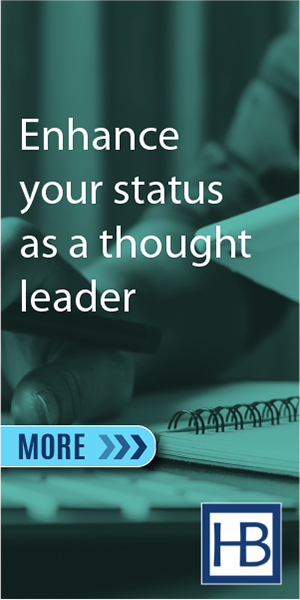Last month’s post about faster, clearer writing, generated a fair amount of feedback. Several readers asked how to get started when you’re staring at a blank screen or simply dreading the process of “putting pen to paper”?
We get this question often during the Dog Days of summer because everyone’s on vacation, thinking about vacation or about to go on vacation. It’s hot and humid and now we have the looming recession, bear market and rising interest rates to further dampen your enthusiasm for doing anything extra, like being a thought leader.
Basketball legend, Julius Erving (aka Dr. J), once said: “Being a professional is doing the thing you love to do on the days you don’t feel like doing it.” I know what you’re thinking. You don’t love writing. But you’re a professional. Sooner or later, you’ll have to publish something under you own name for your clients, staff, prospects or industry peers. So, yeah, you’re a writer.
Don’t beat yourself up
I bring this up because this up because late summer is when my own creative juices aren’t flowing like they normally do. Outside of the office my workouts and race results are also slower than at any other time of year. Projects around my office and my house tend to get delayed if not ignored.
Acknowledge that these speed bumps in your productivity are seasonal, not permanent. Most of us don’t have the luxury of folding up the tent until Labor Day when full energy resumes. Instead, slow down and set reasonable seasonal-adjusted goals during the Dog Days of August so you can hit the ground running in September.
- If you normally call 10 prospects a month, cut back to five or six, but make those calls impactful.
- If your firm normally does four blog posts a month, dial that back to two or three, but spend the time to make them poignant.
- If you normally fly two or three times a month to see clients, maybe cut that back to once a month and fold a vacation into the trip.
Tips for slowing down to speed up
- What are you really trying to say? Before you write Word One, ask yourself: “What is the single most important thing I want to get across to my audience?” Ask yourself that question out loud and when you have the answer, dictate the answer on your voice recorder or write it down on a white board for everyone to see. This makes the messaging real, and you might want to revise it before blasting it out for public consumption.
- Don’t let your keyboard get in the way. Just tell a story by using any “thought-capturing” means you prefer. Some of you are more comfortable with a legal pad and a pencil than with a computer screen, especially when you can go outside and compose your thoughts to “write” on a favorite deck chair or hammock. The key is to slow down and find a quiet place to think.
- If you can say it, you can do it. A few of you are natural writers, but many of you are more comfortable dictating into a voice recorder while stuck in traffic. Some of you are great presenters and PowerPoint whizzes but freeze up at the site of a blank computer screen. If so, try recording yourself on video, or having a colleague or close family member record you. One of our clients “dictated” two entire books to us using nothing but his best slide presentations and lecture notes.
The key is to slow down, compose your thoughts and tell your story in your natural voice so it comes through loud and clear.
Most of you are established professionals and thought leaders. You have a great personal story to share and it’s probably more interesting than you think. But if you don’t sound like you believe your own story when you tell it, then how do you expect your readers and followers to buy it?
Still not convinced it’s worth slowing down? Well, a Harvard Business Review study of over 300 businesses showed that companies that took adequate time for deliberation and planning averaged 40% higher sales and 52% higher operating profits over a three-year period.
I’d love to tell you we have “6 Easy Steps” or a magic formula for making the writing process easier. We don’t. It’s a personal battle between you and your subconscious. To win that battle you have to slow down, be brutally honest with yourself and go back to basics. Get crystal clear about what you’re trying to convey to your audience and how can they use it in their day-to-day lives?
As always, we’re here to help.
Conclusion
Here’s more about busting through writer’s block and procrastination. As French philosopher Voltaire famously said, “Don’t let perfection be the enemy of good.” Just take your time and be prepared to revise, revise and revise. Still not sure what to write about? .Ping me any time. I’m happy to help.
#effectivewriting, #thoughtleadership, #practicemanagement










